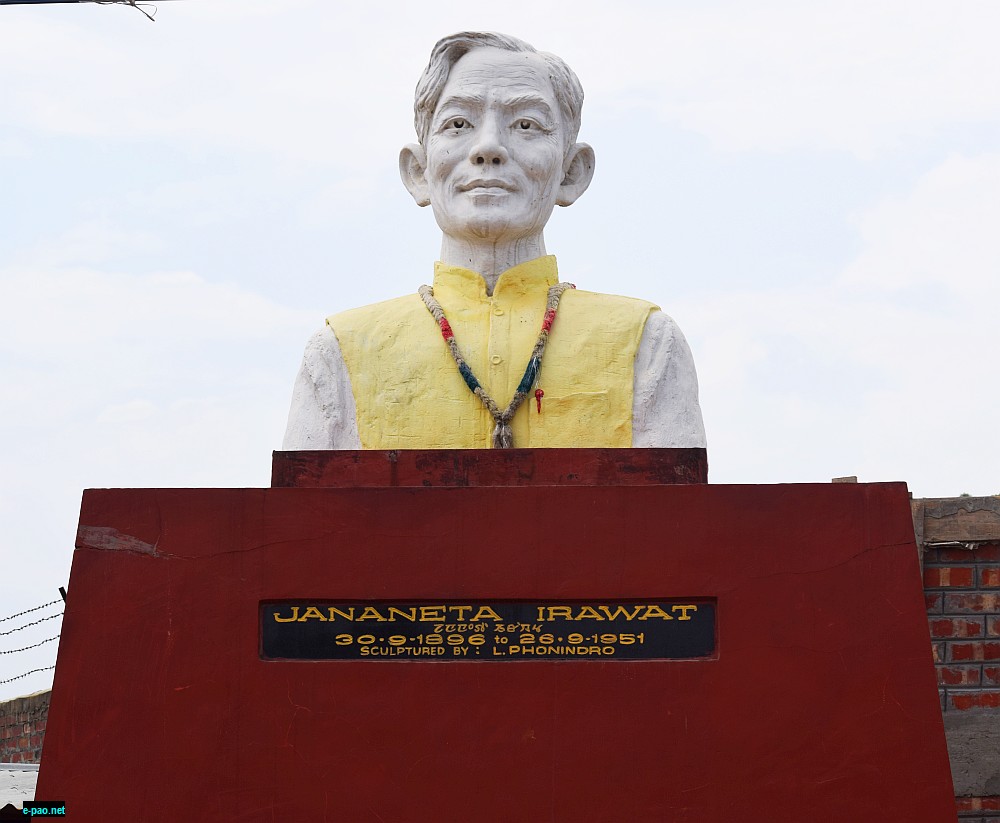
On September 21, 1948, a public meeting was called by a member of the Manipur Assembly to protest the proposed formation of Purbachal Pradesh. This was to be composed of Manipur, Tripura, Cachar and the Lushai Hills, with its capital in Silchar town. People coming to the meeting were stopped, and at Pungdongbam village In Imphal East district, a scuffle broke out, in which, tragically, a police officer lost his life. As a result of the police action, the meeting was not held, a warrant was issued against the leader, who evaded arrest. This communist leader died a few years later in the jungle, a fugitive of the law.
This is known as the Pungdongbam Incident, and is seen as a watershed in the history of Manipur, and is seen as the day which saved Manipur. In 1976, the birthday of the 52-year old communist, who called for the protest, was declared a state holiday, and in 2018, the Government of Manipur gave the observation of the Jana Neta Irawat Day, the status of a State Function.
Hijam Irawat Singh was an incredible person. He was an anti-colonial fighter, noted for his involvement in the second Nupi Lan (women’s war) in 1939 which saw women protest the famine-like situation caused by the export of rice by the British. He was a communist political activist and worked with peasants and tea garden workers. He was a poet, a playwright, an author and an editor – with many published and unpublished works. He was a keen actor and participated in many theatre performances. He was active as a sportsperson playing a number of sports and was also interested in and encouraged the spread of ‘satjal’ – the Manipuri style of martial arts.
Jananeta Irawat’s multi-faceted personality was not just limited to his individual interest and pursuits, he emphasised on the need to spread sports and cultural activities in the state. He initiated the organisation of various sports tournaments in football, hockey and cricket, many of which were the first of their kind in Manipur. He also promoted the idea of celebrating Holi (‘Yaoshang’) through local youth clubs by organising sports and cultural meets within the community for children, youth and senior citizens. The activities are organised in the community ground of each village.
It is natural that his popularity as a leader beloved by the people of Manipur grew even after his death. His vision for an egalitarian and independent society in Manipur continues to capture the imagination of all people of Manipur.
Many are of the opinion that merely meeting once a year to talk about him is not enough. The need of the hour is to think and act with the same zeal today and deal with the problems that the present society is facing.
It is no surprise then that on Jananeta Irawat Day, all across the state of Manipur, the youth of the state come forward to do social service works for the community. It has become customary for young people to organise programmes to clean up the common areas and set up paper lanterns to be lit later in the evening.
This is the day that across villages the community comes together to clean up the public ponds that are used by everybody throughout the year.
Volunteerism through these social service campaigns means much more than the mere act of cleaning up a common area or a public pond, it brings together all people to work together for a common cause, promoting an environment of amicable conversation and healthy.
For all societies seeking to improve the feeling of togetherness and oneness, such occasions of community activity and informal public interaction are the best starting point to build an inclusive and harmonious living. This practice of promoting public associations and healthy exchange should be encouraged for the welfare and prosperity of the state of Manipur and the whole country.
About the author:
Monika Ingudam Devi is a development professional working with ActionAid Association. She was recently awarded the National Youth Icon Award 2019, by the International Youth Committee.

